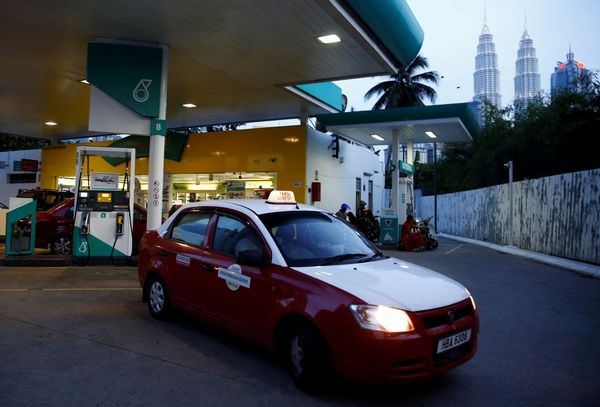By Yasmin Ramlan
SHAH ALAM, June 26 — Beginning July 1, the government will prohibit the registration and use of all natural gas vehicles (NGVs) in Malaysia, affecting over 44,300 vehicles, including taxis, private cars, buses, lorries, and industrial machinery.
The move follows a Cabinet decision prioritising public safety, as most NGV tanks in use today were installed between 1995 and 2014, meaning they reached, or have surpassed, their 15-year safety lifespan.
The authorities have raised concerns about the risks of tank failure, potential explosions, and incidents involving hazardous modifications, like the illegal use of cooking gas cylinders in vehicles.
The policy is also intended to accelerate the transition to electric vehicles (EVs) and cleaner fuel alternatives, thereby reducing carbon emissions.
In line with the policy shift, Petroliam Nasional Bhd (Petronas) will halt the sale of NGV fuel at its stations in stages from July 1 onwards.
Whether you are a member of the general public or part of the trade and business sector, here is what you need to know about how this policy will affect you and what you can expect from the change:
General public
- NGV private vehicle owners must switch to a different fuel type or vehicle: Private car owners using NGV systems will no longer be allowed to renew their road tax or use NGV-powered vehicles, forcing them to either convert to a petrol or diesel vehicle or buy a new one. If you are a family using an NGV car to save on fuel costs, switching back to petrol will increase your monthly fuel expenses.
- Minimal impact on most road users: According to the Road Transport Department (JPJ), there are currently 44,383 registered NGVs, which are either dual-fuel or dedicated NGV vehicles. They make up only about 0.2 per cent of all registered vehicles in Malaysia, so the majority of the public will not be directly affected.
- Safety improvements: According to Transport Minister Anthony Loke, the primary reason for the ban is safety, as most NGV tanks in Malaysia are now reaching or have exceeded their 15-year safe usage lifespan. Some users have also modified their vehicles by installing cooking gas cylinders, with previous incidents of accidents and explosions.
- Transition support for taxi drivers: To help affected taxi drivers, the government is offering a one-off RM3,000 voucher to assist with the transition to petrol-powered vehicles or other alternatives. However, drivers must be registered with the Land Public Transport Agency (APAD) before October 1, 2024, and possess a valid Taxi Driver's Card and Vehicle Permit.
Trade and businesses
- Higher operating costs for commercial fleets: Businesses operating NGV-powered taxis, buses, lorries, or machinery will face increased fuel costs as they switch to petrol or diesel, impacting profit margins. For instance, a taxi company with a fleet of NGV taxis will see its fuel expenses rise, possibly leading to higher fares or reduced services.
- Transition costs and disruption: Companies must invest in converting vehicles or purchasing new ones, as well as managing the logistics of removing NGV kits.
- Opportunity for EV and petrol vehicle market growth: The ban is expected to boost demand for hybrid, petrol, and EVs, as fleet operators and private owners look for replacements.




